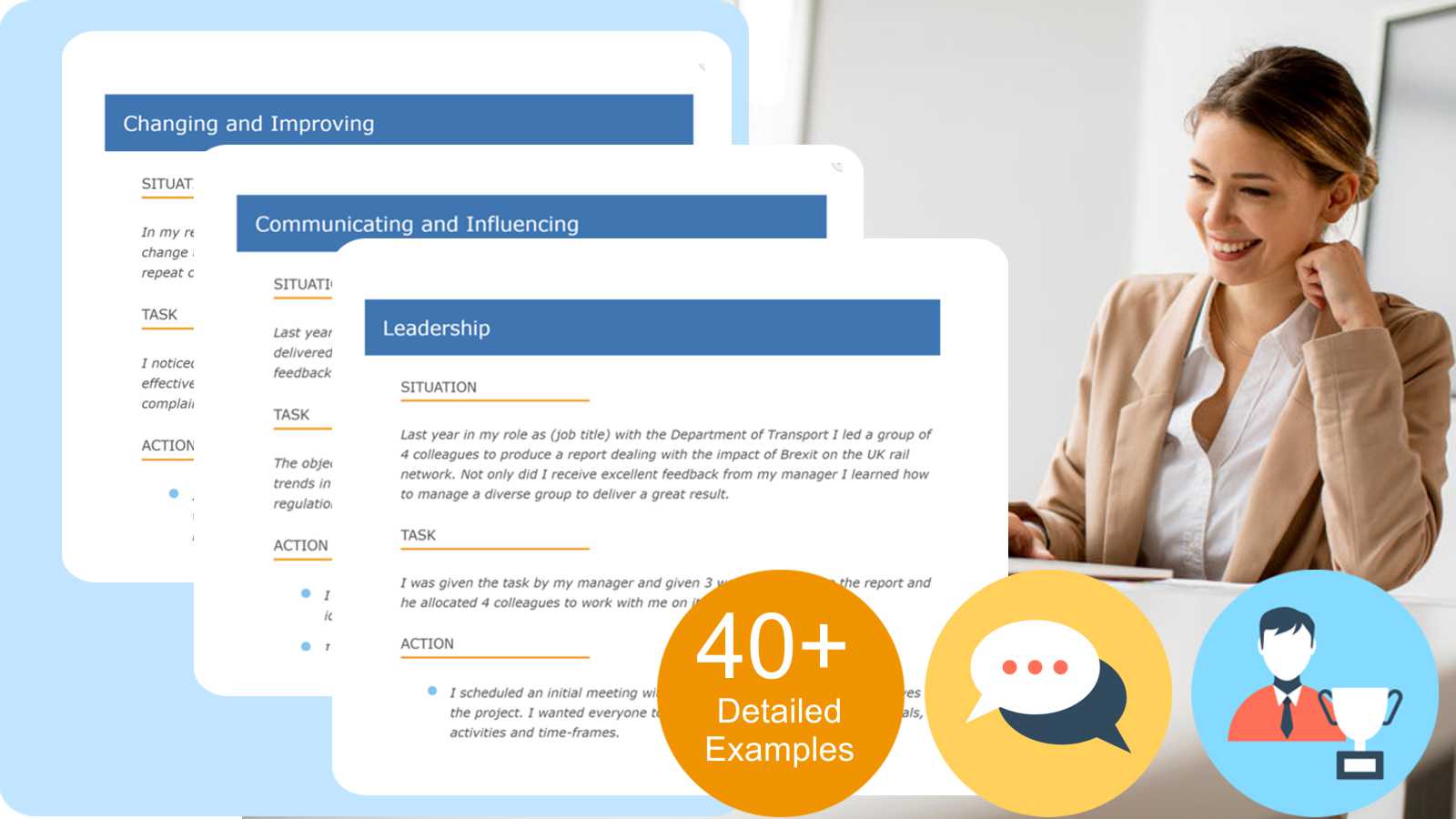
One of the most commonly asked questions at a job interview is one which explores where you see your career taking you in 2, 3 or most likely 5 years time.
The most common questions are: “Where do you see yourself in 2, 3 or 5 years?” or “Where do you want to be 2 years from now?”
If you don’t have all your life mapped out, the question can cause confusion.
Moreover, it can seem annoying. Do you really know what you will be doing or do you really know what you would want to be doing in five years?
Life and career plans can change rapidly. That makes responding to this type of question challenging even for the most focused and ambitious candidates.
However, the fact that you cannot predict the future or your career does not mean you cannot plan for it. Here are some great tips to when constructing an answer to this question which will boost your chances of success and get you that job offer.
In This Guide:
- Why They Ask “Where Do You See Yourself In 2, 3 or 5 Years?”
- 5 Golden Rules For Answering “Where Do You See Yourself in the Future?”
- Simple Dos and Don’ts When Answering “Where do you see yourself in 2,3 or 5 years?”
- “Where do You See Yourself in 5 years?” – 4 Super Answers to Inspire You
- Sample Answer 1: Project Manager
- Sample Answer 2: Management Role
- Sample Answer 3: Customer Services
- Sample Answer 4: Graduate or Student
- How to Dramatically Boost Your Chances of Interview Success
Why They Ask “Where Do You See Yourself In 2, 3 or 5 Years?”
To answer this question well, you need to review and reflect on what exactly they are looking for. What is the context behind it. What is it exactly that the interviewer is looking for?
Here are the top 3 reasons why they ask this question:
Assessing Your Long-Term Goals
Interviewers ask about your career plans to gauge your ability to think strategically and set long-term goals. This question helps them understand if your career goals align with the company’s trajectory. Also, they want to see if you have a clear vision for your professional development – where you see yourself in the future.
In addition, the cost of turnover is high, and not surprisingly, organisations look for employees that will be productive, capable and importantly will stay long enough to provide a return on investment.
Evaluating Commitment and Compatibility
By inquiring about your future plans, interviewers seek insights into your commitment to the role and the organisation. Understanding where you see yourself in 5 years helps them assess if you are likely to stay with the company, ensuring that your career goals align with the opportunities they can provide.
If with your interview answer you can convince the employer you will be loyal and committed, your chance of getting the job offer increases. They will see that you are intending to stay in a role for longer.
Exploring Ambition and Growth Potential
Many positions require you to be ambitious. Hiring managers want to find a person who will be sufficiently ambitious to grow and change along with the organisation however not overtly determined that they simply want to use the post as a stepping stone to something bigger with another employer.
Your response to this question allows interviewers to evaluate your ambition and ascertain if the role you’re interviewing for aligns with your career trajectory, ensuring a mutually beneficial fit.
5 Golden Rules For Answering “Where Do You See Yourself in the Future?”

The key to a great answer is to tell them what they want to hear. They want someone who is committed, who will stay in the role for the foreseeable future, perhaps even the magic 5 years.
Here are out golden rules for answering:
1. Show Your Plans Are in Alignment with the Company
Tailor your response to demonstrate that your professional goals align with the company’s mission, values, and long-term objectives. Emphasize how your aspirations contribute to the organization’s success, reinforcing your commitment to being a valuable team member.
2. Show Your Ambition and Desire to Grow Professionally
Highlight your ambition by outlining how you plan to grow within the role and contribute to the company’s progress. Discuss specific skills you aim to develop and your willingness to take on additional responsibilities, signaling to the interviewer that you are motivated and proactive in your career.
3. Balance Realism and Optimism
Provide a realistic yet optimistic view of your future. While it’s acceptable to express ambition, ensure that your goals are achievable and in line with your career trajectory. This balance showcases a thoughtful approach to your professional development, reflecting both ambition and practicality.
For example, while you may want to be a manager or leader one day, be cautious about showing over ambition. This could be seen as cockiness which may not fit with many organisations.
4. Clearly Connect Past Experiences to Future Goals
Establish a connection between your past experiences and your future goals.
This narrative helps create a logical progression in your career path, demonstrating that your current interview is a pivotal step toward achieving your long-term objectives. Showcase how the skills and knowledge gained will contribute to your envisioned future role.
5. Employers Love to see an Emphasis on Continuous Learning
Highlight your commitment to continuous learning and development.
Employers appreciate candidates who value staying updated on industry trends and are willing to invest in their skills. Mention any plans for further education, relevant certifications, or training opportunities that align with your career goals and the company’s needs.
This emphasises your dedication to remaining a valuable asset over the long term.
Perfect Answers – Know What to Say To Win The Job

Join InterviewGold today and get instant access to expert STAR answers, job specific questions plus powerful answers, all proven to win jobs.
Simple Dos and Don’ts When Answering “Where do you see yourself in 2,3 or 5 years?”
Dos
- Reflect and refresh your memory of your skills and experience in order to have a personal answer
- Understand what the interviewer wants to get from your answer
- Give a positive response outlining your desire to be with this organisation and delivering great quality work
Don’ts
- Give an answer which shows your intention to move from this company within a short space of time
- Limit yourself to a specific position – ideally you would be expected to show a desire for growth
- Just say you have no plans. Show that you have given thought to your career and chosen this post as a key central part of that plan
“Where do You See Yourself in 5 years?” – 4 Super Answers to Inspire You

Your answer in the interview will of course be personal to you. However here are 4 great sample answers to help inspire you. Use these as a guide along with the rules above and you will be able to create an answer that will impress in any interview.
Sample Answer 1: Project Manager
“I have a very clear goal.
Within five years I can see myself as an expert project manager who has a reputation of delivering international projects on time and within budget. I will have a track record of several successful and innovative projects that have brought significant profits to the company.
I will also work on my personal and professional development to become an expert in this field whose word is valued and respected both internally and externally among peers.
Overall I can certainly see myself working with this organisation contributing as part of or leading the team and thoroughly enjoying my work.”
Sample Answer 2: Management Role
“In five years, I envision myself in a leadership role where I can leverage my skills and experiences to contribute significantly to the growth and success of the organisation.
I enjoy my current Manager role very much and I am committed to continuously developing my expertise. I see myself taking on more responsibilities that align with my passion for managing teams. My goal is not only to excel in my individual contributions but also to lead and inspire a larger team toward achieving common objectives.
Moreover, I am eager to embrace opportunities for professional development and training within the company, as I believe in the value of continuous learning. I see myself actively involved in projects that drive innovation and positively impact the bottom line. Ultimately, I aim to be an integral part of a dynamic and forward-thinking team, where my skills and leadership contribute to the company’s continued success.”
Get Interview Questions & Expert Answers for Your Target Job
Get Instant Access to InterviewGold and Get The Job You Want
Sample Answer 3: Customer Services
“In the next five years, I am committed to progressing in my career in customer service. My aim is to master my current role and expand my skill set. I see myself taking on more challenging projects, assuming additional responsibilities, and potentially moving into a customer services leadership position. My aim is to contribute significantly to the success of the team and the overall objectives of the organization.
I plan to stay abreast of industry trends and technological advancements, ensuring that I remain a valuable asset to the company. I am open to pursuing additional certifications and training that align with the evolving needs of the business. For example, I am planning a Certificate in Customer Services Excellence this year. By continuously developing my expertise, I aspire to play a key role in the company’s growth and success over the coming years.”
Sample Answer 4: Graduate or Student
“As a recent graduate I am now just embarking on my professional career. I have a very clear vision and in the next five years, I envision a path of continuous personal and professional growth.
I am passionate about this sector and I see myself honing these skills to become an expert in my field. My goal is to take on progressively more challenging projects that allow me to contribute meaningfully to your success.
Eventually I am also keen on exploring leadership opportunities, whether it’s in a formal managerial role or by leading cross-functional initiatives.
Beyond career development, I value work-life balance and plan to contribute to a positive and collaborative work environment. By maintaining a commitment to learning, adaptability, and building strong relationships within the company, I aim to achieve both personal fulfillment and contribute significantly to the success of the team and the organization as a whole.”
How to Dramatically Boost Your Chances of Interview Success
Want to dramatically boost your chances of getting the job you want?
With our online interview training program you will learn easy, magic formulas for answering this question and hundreds of others commonly asked at your level.
Plus with you will get detailed sample answers all proven to win jobs including expert STAR answers.
Best of all, it is tailored to your job, log in select your sector and then select your role and get accurate questions and answers plus tons of top advice. Over 20 sectors are covered including Accounting, Finance, Customer Services, Banking, Marketing, Sales and more.
Get Interview Questions & Expert Answers for Your Target Job
Get Instant Access to InterviewGold and Get The Job You Want

